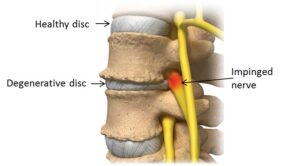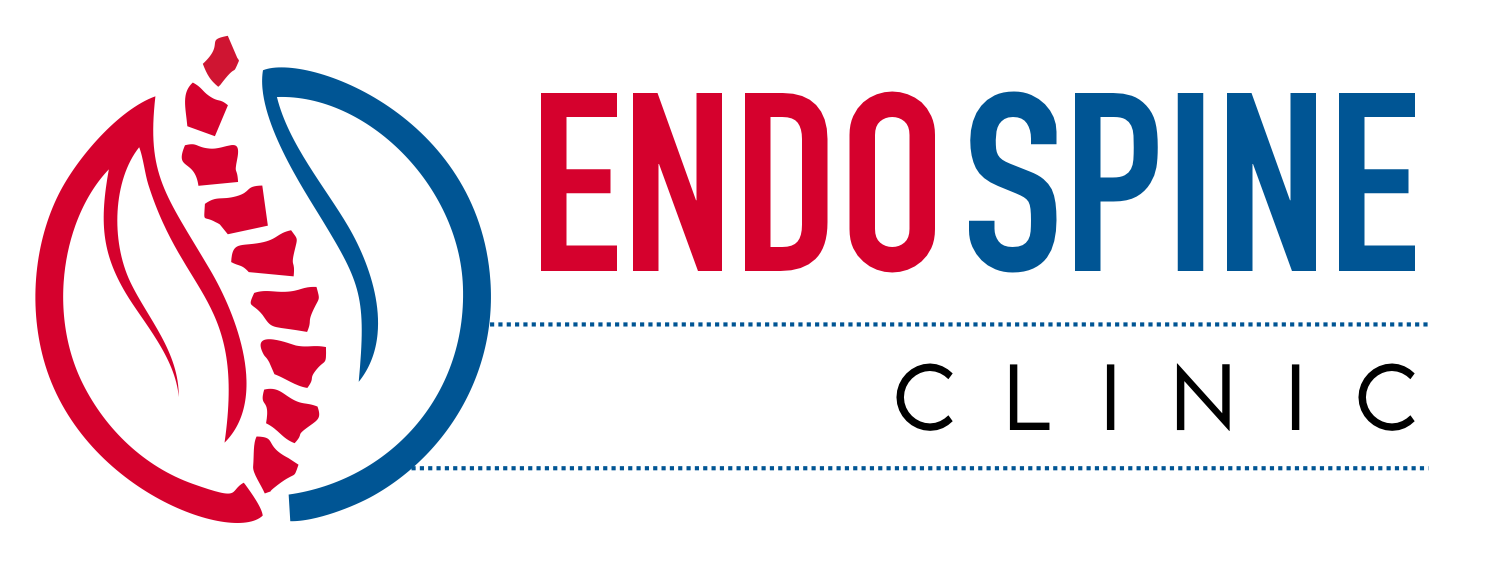What is Degenerative Disc Disease?
- Term used to describe normal changes in your spinal discs as you age
- Most often occurs in discs in the lower back and neck
- We use minimally invasive surgical techniques to alleviate pressure and relieve pain
 As we age the discs in our spine weaken or become damaged from the wear and tear of daily activities. Degenerative disc disease is the term used to describe the normal changes in spinal discs due to ageing.
As we age the discs in our spine weaken or become damaged from the wear and tear of daily activities. Degenerative disc disease is the term used to describe the normal changes in spinal discs due to ageing.
Spinal discs are soft, compressible discs that separate the interlocking bones (vertebrae) that make up the spine. They act as shock absorbers for the spine, allowing it to flex, bend and twist. Changes in spinal discs can result in back or neck pain, osteoarthritis (the breakdown of tissue that protects and cushions joints), herniated disc or spinal stenosis (narrowing of the spinal canal).
These conditions may put pressure on the spinal cord and nerves, leading to pain and possibly affecting nerve function.
Our Treatment Approach
Disc degeneration often leads to bone spurs that can cause nerve impingement and severe pain.
Using minimally invasive techniques, our back and spine specialists shave the bone spurs off, freeing the nerve and relieving the pain without causing unneeded trauma to surrounding tissue. In fact, we avoid cutting muscle altogether so you can get back to life as quickly as possible.
Causes
Degenerative disc disease results from the effects of ageing on discs in the spine.
Symptoms
Degenerative disc disease may result in back or neck pain, but this varies from person to person. Many people have no pain, while others with the same amount of disc damage have severe pain that limits their activities. Where the pain occurs depends on the location of the affected disc. An affected disc in the neck area may result in neck or arm pain. An affected disc in the lower back may result in pain in the back, buttocks or leg. The pain often gets worse with movements such as bending over, reaching up or twisting.
Are you experiencing any of the symptoms? Degenerative disc disease should be treated by an experienced spine specialist. Please get in touch with Dr. Abhijit Pawar and book your appointment today.

